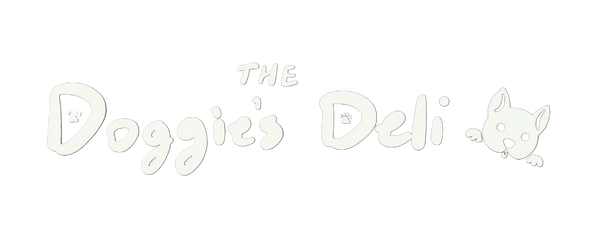
Can Dogs Eat Chicken Breast? Everything You Need to Know
Share
Yes, dogs can eat chicken breast. Dog owners should boil or bake this part of chicken without bones and skins to reduce the risk of splintering, choking, and excess fat. You should prepare chicken breast without oil, salt, and other harmful additives to keep canines free from digestive issues, allergies, and other health concerns.
Chicken breast is often seen as a go-to protein source for dogs, thanks to its lean profile and digestibility. It appears in commercial dog foods, home-cooked meals, and treat recipes alike. But while many assume it’s universally safe, the truth depends on several factors, including the preparation method, the size of the portion, and the dog’s health condition.
This article answers the most common questions dog owners ask—whether chicken breast is safe raw, how it should be cooked if dogs with conditions like diabetes or kidney disease can eat it, and how to spot adverse reactions. By understanding both the nutritional benefits and potential risks, you can make informed decisions that support your dog’s health and well-being.
Is Chicken Breast Safe for Dogs?
Yes, chicken breast is safe for dogs when it is offered skinless, boneless, cooked, unseasoned, and in moderation.
Chicken breast is a good source of lean protein without excess fat, making it a popular choice for treats and supplements in a dog’s diet. The nutritious value of chicken breast, consisting of vitamin B6, iron, zinc, selenium, and essential amino acids, promotes muscle growth, immunity system, coat health, nervous system, hormone regulation, healthy skin, and healthy weight in dogs.
However, feeding it raw to dogs can be risky due to the presence of bacterial contamination in the form of salmonella and campylobacter which can cause vomiting, fever, abdominal pain, and food poisoning. Also, if dogs consume seasoned chicken breast containing garlic, onion, chili powder, mustard seed, and other harmful/toxic seasonings, they can experience digestive issues, rashes, organ damage, skin infection, and other long-term health issues.
Therefore, dog owners must feed poultry breast to canines by preparing it bland and boneless. If provided in optimal portions, dogs can benefit highly from chicken breast and get enough nutrition for an active life. However, if pet owners are unaware of portion control, the risks of nutritional imbalance and overweight can arise.
What Are the Health Benefits of Chicken Breast for Dogs?
The health benefits of chicken breast for dogs include muscle development, improved immunity, healthy weight, better skin and coat health, enhanced cellular health, healthy metabolism, and improved energy production.

The essential nutrients present in chicken breast that are valuable for canines are listed below:
- Lean Protein: Crucial for building muscles, repairing tissues, and promoting overall growth and development.
- Essential Amino Acids: Vital for various bodily functions.
- Vitamin B6 and Niacin: Supports healthy metabolism, promotes energy production, and improves red blood cell function, nervous system health, and hormone regulation.
- Minerals: Includes iron and zinc essential for healthy skin and coat, and proper growth and development.
- Phosphorous: Maintain healthy bones and teeth.
- Selenium: Promotes immune system function.
Likewise, below is a nutritional chart for dogs from a 100-gram cooked chicken breast (skinless):
- Protein: 31 gm
- Fat: 3.6 gm
- Carbs: 0
- Calories: 165 KCAL
- Calcium: 15 gm
- Vitamin A: 10 mcg
- Phosphorous: 228
Are There Any Risks Associated with Feeding Chicken Breast to Dogs?
Yes, there are certain risks like excessive weight gain, bacterial contamination, and other health issues associated with feeding chicken breast to dogs if they are fed disproportionately or underprepared.
Dog owners should maintain portion control while feeding chicken breast to their mutts to avoid being overweight. According to VCA animal hospitals, 59% of dogs in North America are obese or overweight. If your dog is overweight, it may be at risk of diabetes, high blood pressure, chronic kidney disease, lack of mobility, lethargy, liver disease, and respiratory diseases.
Likewise, feeding too much chicken breast to canines can develop chicken allergies or chicken intolerance, resulting in itching, skin infection, indigestion, loose stools, fever, and vomiting.
Therefore, cynophiles should use chicken breast as a supplement in dogs’ diets and balance it with vegetables, grains, and other protein sources like beef, fish, and turkey.
How Should You Prepare Chicken Breast for Your Dog?
You should prepare chicken breast for your dog by cooking it well without adding oil or butter, and seasoning while removing skins and bones. Dog caretakers should ensure that the meat is cut into small and manageable pieces to prevent choking hazards and make it easier for the dog to chew and digest the food properly.
Cooking the chicken breast properly ensures the protein has no harmful bacteria. Careful preparation helps provide nutritional benefits to mutts while avoiding underpreparation and seasoning. These efforts help make the meat easily digestible without any long-term health problems.
Why is Cooking Method Important?
The cooking method for chicken breast is important because it impacts the safety and digestibility of the protein for dogs.
The most ideal or recommended method of preparing fowl breast is boiling and baking. These methods preserve essential natural nutrients without introducing harmful fats or toxins.
The one method that cynophiles should avoid at any cost is frying or grilling with oil, butter, or sauces. Including these ingredients adds extra fat which can upset their digestive system and cause diarrhea, vomiting, and stomach pain. Excessive fat is also linked with life-threatening conditions like pancreatitis.
Some pet owners might prefer feeding raw chicken breast. But, veterinarians advise against this practice due to the risk of bacterial infection like Salmonella or Campylobacter.
What Ingredients Should Be Avoided When Preparing Chicken Breast?
Dog owners should avoid using salt, garlic, onion, nutmeg, chili powder, cayenne pepper, and paprika when preparing chicken breast.
Below is a list of seasoning and ingredients that are harmful/toxic for dogs and must be avoided at any cost:
- Garlic, onion, and chives: Damage red blood cells, leading to anemia.
- Chili powder: Irritation of mouth and digestive system.
- Nutmeg: Upset stomach and damage to the nervous system.
- Cocoa Powder: Vomiting and diarrhea.
- Cayenne Pepper: Mouth and throat irritation.
- Mustard seed/powder: Toxic, Digestive issues.
- Hops: Toxic.
- Bay leaves: Toxic, Upset stomach.
- Paprika: Indigestion.
- Aloe vera: Toxic.
- Pennyroyal: Toxic, Vomiting, Diarrhea, Weakness, Liver damage.
However, some seasonings are safe and beneficial for canines. Parsley contains antioxidants and freshens breath, turmeric reduces inflammation, basil contains vitamins A, B complex, C, and E, ginger reduces nausea and supports digestion, rosemary promotes a healthy heart, sage helps fight seasonal allergies, and cinnamon regulates blood sugar.
Can Dogs Eat Different Types of Chicken Breast Preparations?
Dogs can eat different types of chicken breast preparation as long as they are unseasoned, cooked properly, and free from harmful additives.
How the chicken breast is prepared directly impacts its safety and nutritional value. Animal nutritionists claim boiling and baking as the most suitable method for preparing the fowl breast. Meanwhile, frying or smoking while integrating seasonings may harm the dog’s digestive system and result in long-term health problems. So, dog owners should weigh every preparation option to keep it safe and healthy for hounds.
Is Raw Chicken Breast Safe for Dogs?
Raw chicken breast is safe for dogs if provided in the correct proportion.
Here is the value of essential nutrients found in a 100-gram uncooked/raw chicken breast for dogs:
- Protein: 21.2 gm
- Fat: 1.2 gm
- Carbs: 0
- Calories: 114 KCAL
- Calcium: 5 gm
- Phosphorous: 210
The decision to feed raw poultry breast to canines is debated and many veterinarians do not recommend it. Uncooked chicken breasts pose the risk of bacterial infections such as Salmonella and Campylobacter for dogs. These pathogens can cause acute gastroenteritis, diarrhea, sepsis, abdominal pain, anorexia, and even cross-contamination with humans. Therefore, veterinarian guidance should be sought for feeding raw protein.
Also, pet owners should give special attention to cleanliness. They should clean all the utensils that have been used for preparing raw meat and sanitize all the areas to prevent cross-contamination.
Can Dogs Eat Canned Chicken Breast?
Yes, dogs can eat canned chicken breast only if they are low in sodium content and have no added seasoning or preservatives.
Usually, canned chicken meat contains high sodium levels and different seasonings which is not suitable for dogs. So, pet owners should check the can label and ensure it has low sodium and no toxic seasonings. If these criteria are not met, your dog can suffer from increased blood pressure and indigestion.
One way to ensure the safety of dogs is to rinse the canned chicken breast to remove excess sodium and preservatives. It should then be minced into bite sizes for better chewability. Also, you should provide canned chicken breast as an occasional treat to balance nutrition.
Is Fried Chicken Breast Suitable for Dogs?
No, fried chicken breast is not suitable for dogs as it contains oil, batter, salt, spices, and additives that are toxic. Fried foods are high in fat which irritates a dog’s digestive stomach and pancreas. It results in digestive upset, obesity, and pancreatitis.
Veterinarians and experts advise against feeding fried chicken breast to dogs and recommend plain, cooked protein-free from added oils or coatings.
Can Dogs Have Grilled or Smoked Chicken Breast?
Yes, dogs can have grilled chicken breast if they are prepared plain, unseasoned, boneless, skinless, and without charred areas. But, they should not consume smoked chicken breast.
Dogs should not consume charred meats as they contain carcinogenic chemicals like heterocyclic amines (HAs) and polycyclic aromatic hydrocarbons (PAHs) from high-temperature grilling. These chemicals can cause upset stomach, vomiting, diarrhea, and loss of appetite. Therefore, grilling should be done without oil and marinades for safe consumption for dogs.
Likewise, feeding smoked chicken breast to dogs must be avoided due to the presence of high sodium content, potential spices, and wood smoke residue. These elements affect the dog’s digestive system and overall health.
How Much Chicken Breast Should You Feed Your Dog?
You should feed 1/4 to 1/3 cup of boiled chicken breast per 20 pounds of body weight to your dog.

Below is a table with a clear description of what chicken breast portion to feed dogs, depending on their size:
|
Dog Size |
Cooked Chicken Breast Portion |
Examples of Breeds |
|
Extra-small (2–20 lbs) |
About 1 tablespoon |
Yorkies, Chihuahuas, Pomeranians, Pugs |
|
Small (21–30 lbs) |
2 tablespoons |
Basenjis, Beagles, Miniature American Shepherds |
|
Medium (31–50 lbs) |
Up to 1/4 cup |
Basset Hounds, Border Collies, Australian Cattle Dogs |
|
Large (51–90 lbs) |
About 1/3 cup |
Pit Bulls, German Shepherds, Labrador, Retrievers, Australian Shepherds |
|
Extra-large (91+ lbs) |
About 1/2 cup |
Newfoundlands, Bernese Mountain Dogs, Saint Bernards, Great Pyrenees |
What Factors Determine the Appropriate Serving Size?
The factors that determine the appropriate serving sizes include the dog’s size, age, breed, activity level, and health status.
You should feed smaller portions to small dogs and slightly more protein to bigger and active dogs. The canines with a sedentary lifestyle, compromised digestive system, or health concerns must be provided chicken breast with stricter portion control to avoid being overweight, having digestive problems, and other health issues.
Can Dogs Eat Chicken Breast Every Day?
Yes, dogs can eat chicken breast every day if it is served as a part of a balanced diet.
However, dog owners should not convert chicken breast into the sole protein source. Feeding only chicken breasts can lead to nutrient deficiencies over time due to a lack of essential vitamins, minerals, and fiber. Also, having only chicken breast can result in chicken allergy or sensitivity.
To avoid nutritional imbalance, pet caretakers should include dog-safe vegetables and grains like carrots, pumpkin, brown rice, and green beans in the diet. You should also rotate chicken breasts with other proteins like turkey, beef, and fish to alter the taste while extracting varied nutritional benefits.
Should You Consult a Veterinarian Before Adding Chicken Breast to Your Dog's Diet?
Yes, you should consult a veterinarian before adding chicken breast to your dog’s regular diet. This is essential for dogs with existing health conditions, allergies, or restricted food diets.
With a veterinarian consultation, you will be able to right-size the portion, determine the feeding frequency suitable to your dog based on its age and weight, and ensure a safe and balanced diet. Veterinary input helps avoid overfeeding and food sensitivities and bridges the nutrient gap that dog owners usually miss or are unaware of.
Are There Specific Considerations for Dogs with Health Conditions?
Yes, dogs with health conditions require specific considerations like tailored diets for consuming chicken breast.
While chicken is generally safe and provides nutritional values and health benefits, the protein, phosphorous, and minerals might not favor all dogs. Veterinary supervision is essential when adding chicken breast to the daily diet of dogs with chronic illnesses and other health issues. Depending on the condition, you will require different portion sizes, preparation methods, and feeding frequencies for a safe and nutritious balanced diet.
Is Chicken Breast Suitable for Dogs with Kidney Disease?
No, chicken breast is not suitable for dogs with kidney disease due to high protein and phosphorous content. However, at the earliest stage of kidney disease dogs require more protein so, feeding chicken breast at this phase is fine. But, as the disease progresses, canines need lower protein and phosphorus. Therefore, during this phase consumption of chicken breast for dogs is not recommended as it can worsen the condition quickly and cause fatality.
Here is a nutrient profile of dogs for a good kidney diet:
|
Nutrient |
Grams per 1000 KCAL |
|
Protein |
31-41 |
|
Phosphorous |
0.5-0.8 |
|
Sodium |
0.4-1.2 |
|
EPA and DHA |
0.4-1.2 |
Likewise, you should consider the following aspects while providing kidney diets for dogs:
- Lots of water to maintain hydration.
- Balancing protein for muscle maintenance, immune function, and essential amino acid supply.
- Low phosphorous to slow down the kidney disease progression.
- Omega-3 fatty acids reduce inflammation and improve kidney functions.
- Antioxidants neutralize free radicals that might damage kidneys.
Can Diabetic Dogs Eat Chicken Breast?
Yes, diabetic dogs can eat chicken breast due to its low carbohydrate content.
Feeding plain, skinless, boneless, and unseasoned poultry breast can help regulate sugar levels in dogs. You can feed boiled or baked chicken breast without oil, butter, or additives. Make sure to provide the right proportion to your dog to match caloric requirements and plan insulin management.
What Are Some Healthy Chicken Breast Recipes for Dogs?
Some healthy chicken breast recipes for dogs include boiled chicken and rice, chicken sweet potato mix, chicken and carrot mash, and chicken pot pie.
- Boiled chicken and rice (chicken breast, white or brown rice, water)
- Chicken sweet potato mix (chicken breast, sweet potato, peas)
- Chicken and carrot mash (chicken breast, medium carrot, olive oil)
- Chicken pot pie (chicken breast, carrots, broccoli, water, peas, almond milk, omega oil)
- Chicken, Banana, and Seed Delight (chicken breast, water, mashed banana, shredded zucchini, ground flax seeds, hulled hemp seeds)
For pet parents looking to provide healthy, ready-made chicken-based treats, The Doggies Deli offers a delicious and nutritious range that dogs love.
How to Prepare Boiled Chicken Breast for Dogs?
You can follow the instructions below to prepare nutritious boiled chicken breast for dogs.
- Put boneless and skinless chicken breast in a pot with plain water.
- Boil the chicken for 12-15 minutes.
- Check internal temperature reaches 165°F (74°C).
- Drain the water, cool the chicken breast, and cut it into bite-sized pieces for easy digestion.
Can You Combine Chicken Breast with Other Dog-Friendly Foods?
Yes, you can combine chicken breast with other dog-friendly foods like carrots, brown rice, and pumpkin to create balanced meals.
Here is a list of dog-friendly foods along with their nutritional benefit:
- Brown rice: adds digestible carbohydrates.
- Carrots: rich in beta-carotene and fiber.
- Green beans: low in calories and high in vitamins.
- Pumpkin: supports digestion and relieves constipation.
- Broccoli: rich in vitamin C that improves immunity.
- Peas: provides fiber and vitamins.
- Sweet potatoes: good source of vitamins and fiber.
- Kale and spinach: high in calcium, vitamins K and A, iron, and folate.
- Cauliflower: rich in fiber, antioxidants, potassium, magnesium, calcium, and vitamins A, C, and K.
- Oats: gentle on the digestive system (avoid if grain-sensitive).
- Plain yogurt: provides probiotics for gut health (avoid if lactose intolerant).
What Signs Should You Watch for After Feeding Your Dog Chicken Breast?
After feeding chicken breast to the dog, you should watch for signs of food allergy or intolerance which usually occurs in the form of vomiting, diarrhea, lethargy, loss of appetite, skin itching, or skin rashes.
While unseasoned and well-cooked chicken breast is healthy and safe for dogs, some might still develop allergic reactions or food allergies, especially if it's their first time consuming it. In such cases, close monitoring of dogs helps detect negative symptoms early and helps prevent complications. Detecting symptoms early will allow dog owners to contact a veterinarian on time, seek medical attention, and help the dog regain its healthy state.
How to Identify Allergic Reactions or Digestive Issues?
You can identify allergic reactions or digestive issues from chicken breast in dogs by detecting symptoms, including vomiting, diarrhea, ear infections, itching, skin redness, and bloating or gas.
If your dog is experiencing an allergic reaction or digestive issues, the above-stated symptoms should appear shortly after consuming chicken breasts. In some cases, these symptoms can develop over time. Until you are completely sure, keep monitoring your canine closely, especially during the initial introduction of meat into the diet.
When Should You Seek Veterinary Advice?
If you notice any abnormal symptoms after feeding chicken breast to your dog, you should seek veterinary advice.
Contact a veterinarian if your dog vomits, is suffering from diarrhea, or shows signs of discomfort. Also, pet owners should seek medical attention if dogs with special or restricted diets consume chicken breast.
You should also contact a veterinarian or dog nutritionist for expert advice on portion control, food variety, and long-term nutritional balance. Seeking expert insights ensures your mutt receives the right dietary recommendations that keep its digestive system and overall health in optimal condition.










